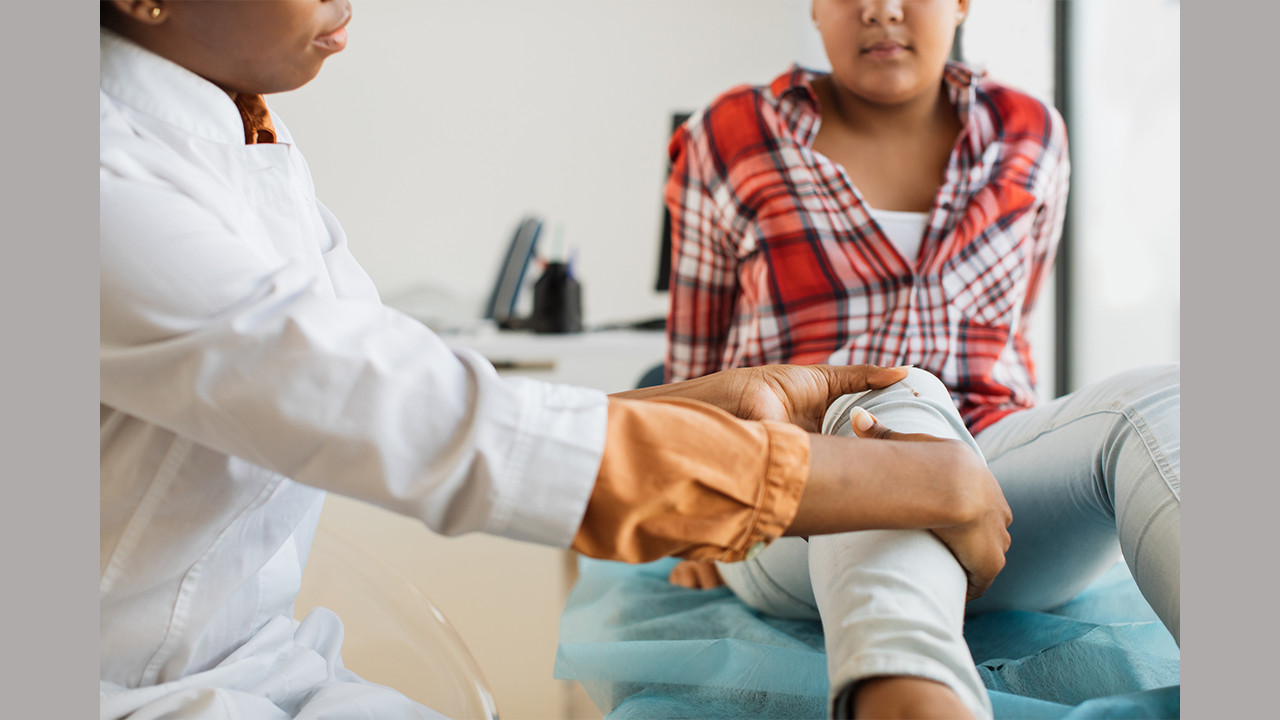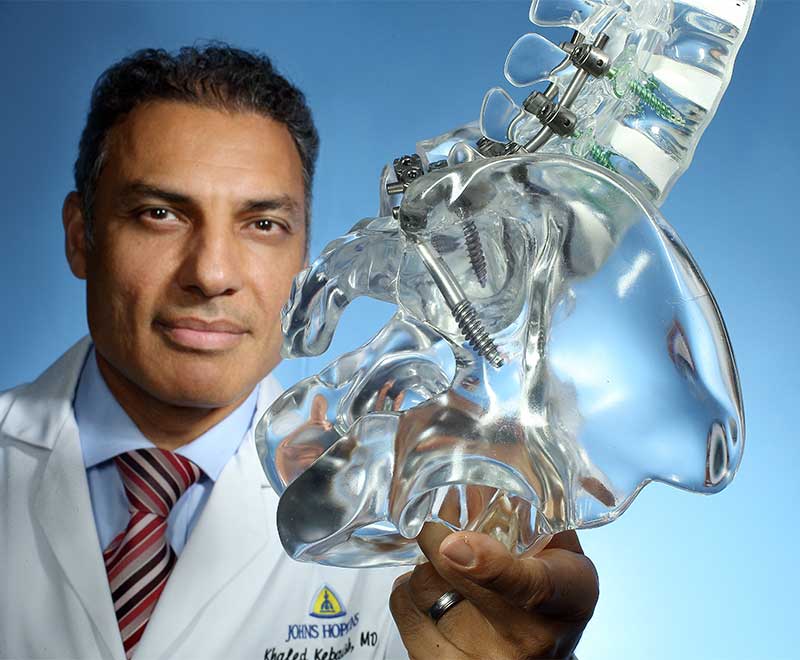The Department of Orthopaedic Surgery’s distinguished history is grounded on Johns Hopkins Medicine’s principle that laboratory research and bedside teaching need to coexist in the instruction and practice of medicine. The creation of a formal Research Division and the Center for Musculoskeletal Research in 2009 provided a nexus for basic and translational research related to the musculoskeletal system.
Clinical Trials
For a complete list of available clinical trials, search the database at the Johns Hopkins Institute for Clinical and Translational Research. You can search by condition, researcher or doctor’s name.
-
Summary: A study of MACI in patients aged 10 to 17 years with symptomatic chondral or osteochondral defects of the knee (PEAK).
Objective: To evaluate an experimental treatment for knee cartilage defects called membrane-induced autologous chondrocyte implantation (MACI).
Principle Investigator: R. Jay Lee, M.D.
Eligibility Criteria: Children age 11-17 with knee cartilage defects
Contact: Gabrielle Richard ([email protected])
-
Summary: A Post-Market, Prospective, Multi-Center, Open-Label, Single Arm Clinical Evaluation of the Integra TitanTM Modular Shoulder System 2.5 for Primary Shoulder Joint Replacement (IRB00169712).
Objective: To evaluate 2-year implant survivorship in subjects who receive the TSS-2.5 when used for primary shoulder arthroplasty.
Principle Investigator: Umasuthan Srikumaran, M.D., M.P.H., M.B.A.
Eligibility Criteria: Candidate for total shoulder arthroplasty.
Contact: Sanjana Vattigunta (443-516-1550 or [email protected])
-
Summary: A study of MACI in patients aged 10 to 17 years with symptomatic chondral or osteochondral defects of the knee (PEAK).
Objective: Evaluate overall pain medication consumption following surgical treatment for shoulder pathology
Principle Investigator: Umasuthan Srikumaran, M.D., M.P.H., M.B.A.
Eligibility Criteria: Opioid-naive adults age 18-90 years old planning to undergo surgical treatment for shoulder pathology with Dr. Uma Srikumaran.
Contact: Sanjana Vattigunta (443-516-1550 or [email protected])
-
Objective: Improve health care for patients with chronic lower back pain (LBP) and increase the likelihood that patients obtain outcomes that matter most to them.
Principle Investigator: Richard Skolasky, Sc.D.
Eligibility Criteria: Adults age 18 - 64 years old, meets NIH Task Force definition of chronic LBP, had a healthcare visit for LBP in the past 90 days and have moderate levels of pain and disability.
Contact: Tricia Kirkhart (410-502-4453 or [email protected])
-
Objective: To evaluate the combined effect of botulinum toxin A (administered as Dysport®) and bracing in children with adolescent idiopathic scoliosis.
Principle Investigator: Paul D. Sponseller, M.D.
Eligibility Criteria: Diagnosed with AIS, 10 to 16-year-old children.
Contact: Vivian Tran and Varun Puvanesarajah (410-955-3136 or [email protected])
Participants in this study will be compensated.
Featured Research Stories
-
Study Finds Delayed ACL Surgery May Be Safe for Many Adults, Less So for Some Children
Johns Hopkins Children's Center investigators report active children are prone to further knee cartilage tears while awaiting repair surgery after ACL injury

-
Lack of Belief in Body's Ability to Function Through Pain Linked to Daily Pre-Surgery Prescribed Opioid Use Among Candidates for Elective Spine Surgery
Researchers discovered a link between pain self-efficacy and preoperative opioid use among patients seeking elective spine surgery

-
Walking a Leashed Dog Associated with Risk of Traumatic Brain Injury Among Adults
Researchers found that women, and adults age 65 and older, were more likely to sustain serious injuries, such as fractures and TBIs, as a result of walking a leashed dog

Research Labs
Our orthopaedic research division and its faculty members are recognized internationally as leading innovators in musculoskeletal science and training. Our investigators conduct basic, translational and clinical research in topics that represent the great diversity of problems that impact the musculoskeletal system. Focus areas include integrative musculoskeletal biology, stem cells and regenerative medicine, skeletal neurobiology, bone metastasis and clinical outcomes.
Komatsu Lab

Spine Outcomes Research Center
Recent Publications
Predicting Major Complications and Discharge Disposition After Adult Spinal Deformity Surgery
Surgical Setting in Achilles Tendon Repair: How Does It Relate to Costs and Complications?
Predicting Risk of 30-day Postoperative Morbidity Using the Pathologic Fracture Mortality Index


